Data from the daily practice of family pediatricians represent a unique and valuable resource. This information helps investigations into the understanding of pediatric diseases, analyze healthcare dynamics, and gain better insights into the overall health of the pediatric population.
Since 1998, Pedianet, an Italian network of family pediatricians, has been systematically collecting clinical and epidemiological data to support scientific research and contribute to the improvement of pediatric healthcare.
This system is based on the transmission of specific data (determined by individual studies) from computerised clinical files, which the paediatricians in the network fill out during their daily professional activities. Informed consent is required from the parents. Such data is collected anonymously by a central server in Padua, where it is validated and elaborated.
Pedianet is an independent network. The coordination of the projects and data analysis are carried out by a scientific committee that include internationally reknown paediatricians, epidemiologists and researchers.
Studies carried out to-date have been financed by public bodies (European Commission, Istituto Superiore di Sanità, AIFA, Consiglio Nazionale delle Ricerche, Regione Veneto, Aziende Socio Sanitarie, Istituto Zooprofilattico delle Venezie) or private groups such as pharmaceutical companies or international research groups. Each project is guided by an agreement between the “sponsor” and Pedianet which always includes publication of the study.
From January 2007, a new law has made it mandatory to present a Paediatric Investigation Plan to EMEA to obtain a paediatric licence. There are also a number of incentives for companies obtaining a paediatric licence for drugs which are already on the market, both under patent and “off patent”. In the last few months the new European legislature has brought about important developments in paediatric clinical research.
Reference Book:
Anna cantarutti, Carlo Giaquinto, Pedianet Database, Database for Pharmacoepidemiological Research, Springer Series on Epidemiology and Public Health (2021)
Scientific Committee

Dr Luigi Cantarutti, Pediatrician, National Coordinator of the Network

Prof Carlo Giaquinto, University of Padova
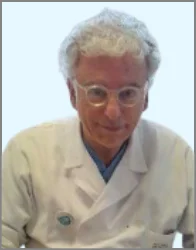
Prof Eugenio Baraldi, University of Padova
Eugenio Baraldi is Full Professor of Pediatrics and Director of the Department of Women's and Children's Health at the University of Padova. He also leads the Neonatology and Neonatal Intensive Care Unit and serves as Director of the School of Pediatrics. In addition to his academic and clinical roles, he is Scientific Director of the Institute of Pediatric Research Città della Speranza, where he oversees research focused on improving pediatric healthcare and outcomes for newborns and children.
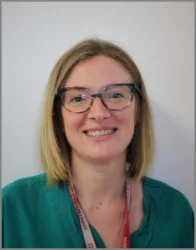
Prof Silvia Bressan, University of Padova
Dr. Silvia Bressan is an Associate Professor of Pediatrics at the University of Padova. Nationally, Silvia has contributed to the development of clinical guidelines for pediatric head trauma and participated in the Italian Consensus Conference on procedural analgesia and sedation. She is a scientific committee member of the Italian Society of Pediatric Emergency Medicine (SIMEUP) and the university liaison for the DARE PNC initiative. Internationally, she is part of the APEC course faculty and a member of the Steering Committee of the Research in European Pediatric Emergency Medicine (REPEM) network. Since 2022, she has served as Chair of the global Pediatric Emergency Research Networks (PERN). Her scientific work focuses on pediatric emergency care, with a particular interest in clinical decision-making and trauma management.

Prof Paolo Rossi, University of Tor Vergata, Roma
Dr. Paolo Rossi is an Immunologist and Professor of Paediatrics at the Children’s Hospital Bambino Gesù/ University of Rome Tor Vergata. He dedicated most of his career to congenital immunodeficiency pathogenesis. Particularly, in the field of HIV, he has performed significant research on MTCT mechanisms, HIV molecular diagnosis in infants, and analysis of immunological mechanisms correlating to early ART. Paolo coordinated the only HIV therapeutic vaccine trial conducted on HIV infected children.
Statistical Analysis
The statistical analysis was conducted in collaboration with the biostatistics group at the University of Milano-Bicocca
Coordinator:

Dr. Anna Cantarutti, PhD in Public Health
Dr. Anna Cantarutti (PhD in Public Health, Assistant professor at the Univeristy of Milano-Bicocca) has over ten years of experience in pharmacoepidemiological research, with a strong focus on maternal and child health. Her work explores the utilization, comparative safety, and effectiveness of medications in pregnant women, their offspring, and children, aiming to inform safer prescribing practices and improve health outcomes. More recently, her research has concentrated on the prevention of respiratory infections in pediatric populations, investigating treatment approaches, immunization strategies, and public health interventions to reduce disease burden in children
Group:
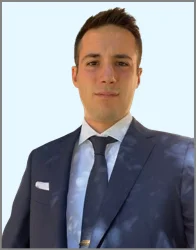
Dr. Riccardo Boracchini (PhD student in Public Health)
Dr. Riccardo Boracchini is a second-year PhD student specializing in Public Health Epidemiology, Statistics, and Economics. He has three years of experience in epidemiological research and causal inference studies, focusing on analyzing disease patterns, risk factors, and the impact of interventions on public health outcomes. His main fields of research include respiratory infections and antibiotic use, exploring their epidemiology, treatment patterns, and the broader implications for antimicrobial resistance and healthcare policies.
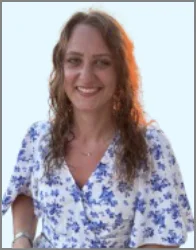
Dr. Benedetta Canova (PhD student in Public Health)
Dr. Benedetta Canova is a first-year PhD student specializing in Public Health Epidemiology, Statistics, and Economics. She has one year of experience applying machine learning algorithms and artificial intelligence to support primary care assistance, focusing on developing data-driven solutions to enhance healthcare delivery. Her current research primarily involves designing and optimizing disease classification algorithms using free-text clinical data, aiming to improve diagnostic accuracy and streamline patient management in primary care settings.
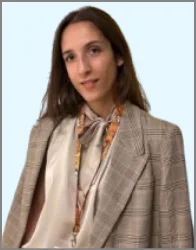
Dr. Vera Rigamonti (research fellow)
Dr. Vera Rigamonti (MSc in Biostatistics) has two years of experience in pharmacoepidemiological research, with a particular focus on maternal and child health. Her work involves analyzing medication use, health outcomes, and risk factors during pregnancy and early childhood. Recently, her research has centered on the uptake and effectiveness of influenza vaccinations in children, assessing vaccination coverage, determinants of immunization, and its impact on respiratory infections and overall child health.
Data Monitor
Antonio Scamarcia, Società Servizi Telematici, Padova
Computer-related Assistance
Alessandro Zandarin, Società Servizi Telematici, Padova

